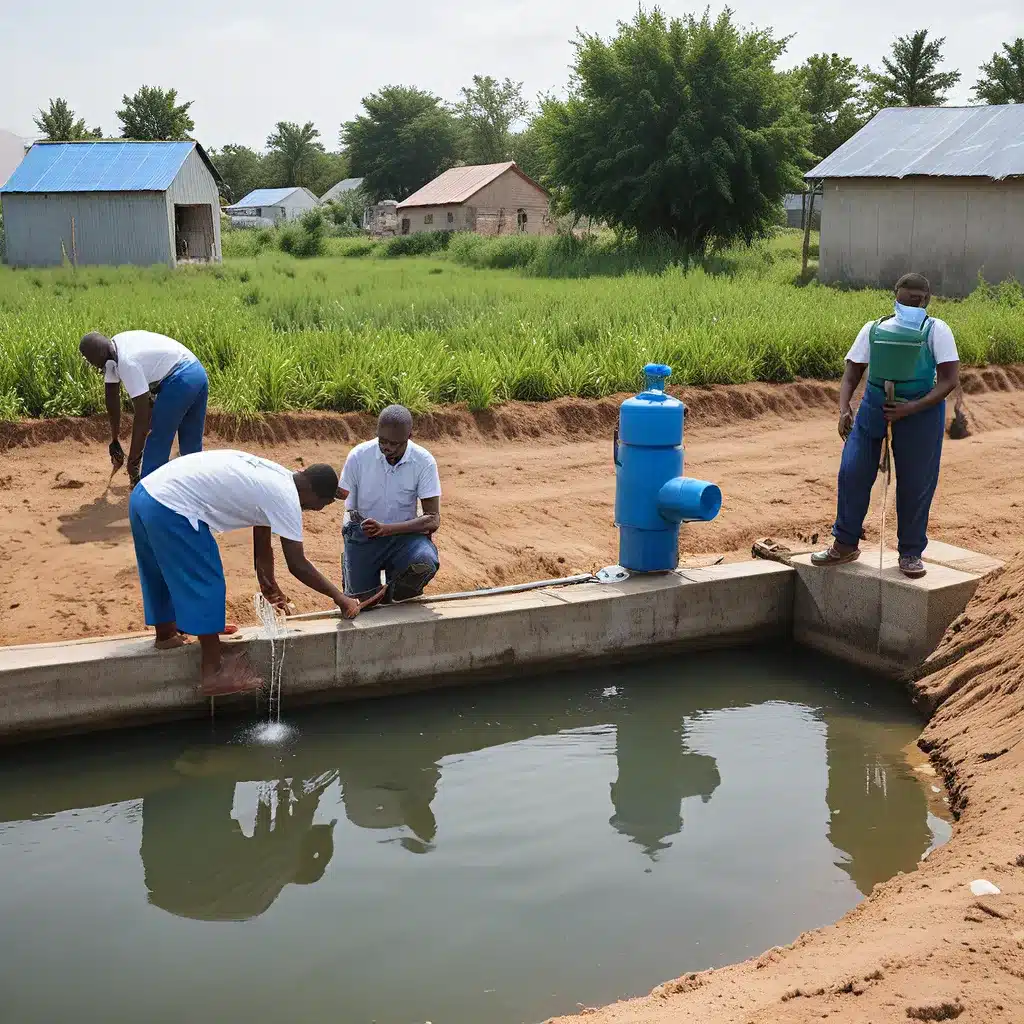
Empowering Communities through Eco-Friendly Water Treatment Practices
As I sit here, sipping a refreshing glass of water, I can’t help but marvel at the incredible journey it took to get this clean, life-sustaining liquid into my hands. It’s easy to take clean water for granted, but the reality is that millions of people around the world lack access to this basic human necessity. That’s where the mission of Inland Waters Inc. comes into play – empowering communities through eco-friendly water treatment practices.
Uncovering the Water Crisis
It all started when I stumbled upon a sobering statistic – nearly 2.2 billion people around the world lack access to safely managed drinking water services. That’s more than a quarter of the global population! As I dug deeper, the gravity of the situation became increasingly clear. In many rural and vulnerable areas, water scarcity is a constant struggle, with communities relying on contaminated sources that put their health and well-being at risk.
According to the UNDP, access to clean water is not only a basic human right, but also a key determinant of community health, economic development, and overall well-being. It’s a sobering realization that for far too many, this fundamental resource remains out of reach.
Empowering Communities, One Step at a Time
The good news is that there are organizations like Inland Waters Inc. that are committed to making a difference. Through their innovative eco-friendly water treatment practices, they’re empowering communities to take control of their water resources and create a more sustainable future.
One of the core pillars of their approach is education. As the UNDP article highlights, education catalyzes the building of awareness and understanding about the importance of water resources and their sustainable management. By equipping community members with knowledge about their local water ecosystems, the impact of human activities on water quality, and the significance of conservation, Inland Waters is fostering a sense of ownership and responsibility.
But it’s not just about raising awareness – it’s also about promoting hygiene and health. Through targeted capacity-building programs, communities are learning about proper hygiene practices, the prevention of waterborne diseases, and the importance of safe water handling. This hands-on knowledge empowers them to actively contribute to maintaining clean water sources and improving public health.
Fostering Community Engagement and Ownership
Education also plays a crucial role in encouraging community engagement. When individuals are armed with the knowledge and tools needed to participate in decision-making processes related to water management, they’re more likely to get involved, contribute ideas, and collaborate on initiatives that benefit the entire community.
“It’s all about creating a sense of ownership,” explains Jane, the community outreach coordinator at Inland Waters. “When people understand the intricacies of their water systems and the impact of sustainable practices, they develop a collective responsibility for the proper use and conservation of this precious resource.”
This sense of ownership is further reinforced through the development of practical technical skills. Inland Waters provides training to community members in areas like water infrastructure maintenance, water quality testing, and the operation of decentralized water treatment systems. By equipping them with these crucial competencies, the organization empowers individuals to actively manage and sustain water initiatives within their own communities.
Adapting to a Changing Climate
As the effects of climate change continue to unfold, the importance of empowering communities through eco-friendly water treatment practices becomes even more apparent. The UNDP article highlights how education and capacity-building initiatives can help communities adapt to changing conditions, ensuring the resilience of water management practices in the face of uncertainties.
“We’ve seen firsthand how climate-induced disruptions can wreak havoc on water systems,” says John, the lead water treatment engineer at Inland Waters. “But the communities we work with are better prepared to recognize and respond to these environmental shifts because they’ve been equipped with the knowledge and skills to adapt.”
Building Social Cohesion and Local Champions
The benefits of Inland Waters’ approach extend beyond just water management – it’s also about strengthening the social fabric of communities. As individuals gain knowledge and skills together, a sense of shared responsibility and collaboration is nurtured. This social cohesion forms a strong foundation for collective action in sustainable water management.
“It’s amazing to see how education can bring people together,” says Sarah, the community liaison at Inland Waters. “We’ve witnessed local water champions emerge, advocating for responsible water practices and encouraging positive behaviors within their communities. It’s a ripple effect that amplifies the impact of our work.”
A Holistic Approach to Water Sustainability
Inland Waters’ commitment to empowering communities through eco-friendly water treatment practices is a multifaceted endeavor. It’s not just about installing fancy water filtration systems or implementing high-tech solutions. It’s about building awareness, promoting hygiene and health, fostering community engagement, enhancing technical skills, cultivating a sense of ownership, facilitating adaptation to change, and strengthening social cohesion.
As I reflect on my conversation with the Inland Waters team, I’m struck by the holistic nature of their approach. They understand that sustainable water management is not just about the technical aspects – it’s about empowering people to be active participants in the process.
The Path Forward
While the water crisis may seem daunting, organizations like Inland Waters are proof that there is hope. By empowering communities through eco-friendly water treatment practices, they are not only addressing immediate needs but also laying the foundation for long-term water sustainability.
As I raise my glass of freshwater, I can’t help but feel a sense of gratitude and inspiration. This is the power of education, capacity-building, and community engagement – transforming lives, one water source at a time. It’s a journey that Inland Waters is steadfastly committed to, and one that I hope more people will join in the years to come.


